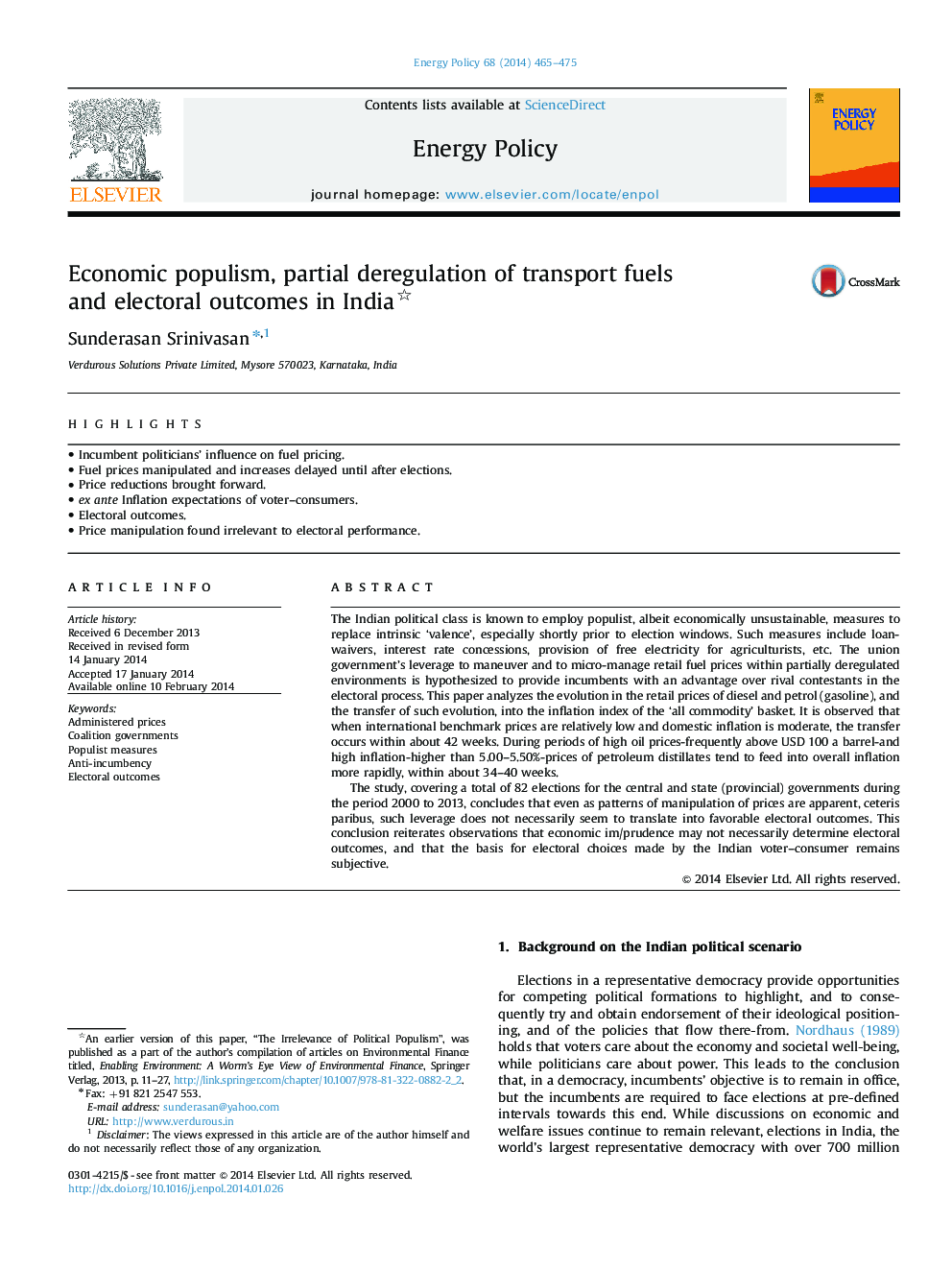| Article ID | Journal | Published Year | Pages | File Type |
|---|---|---|---|---|
| 7402444 | Energy Policy | 2014 | 11 Pages |
Abstract
The study, covering a total of 82 elections for the central and state (provincial) governments during the period 2000 to 2013, concludes that even as patterns of manipulation of prices are apparent, ceteris paribus, such leverage does not necessarily seem to translate into favorable electoral outcomes. This conclusion reiterates observations that economic im/prudence may not necessarily determine electoral outcomes, and that the basis for electoral choices made by the Indian voter-consumer remains subjective.
Keywords
Related Topics
Physical Sciences and Engineering
Energy
Energy Engineering and Power Technology
Authors
Sunderasan Srinivasan,
